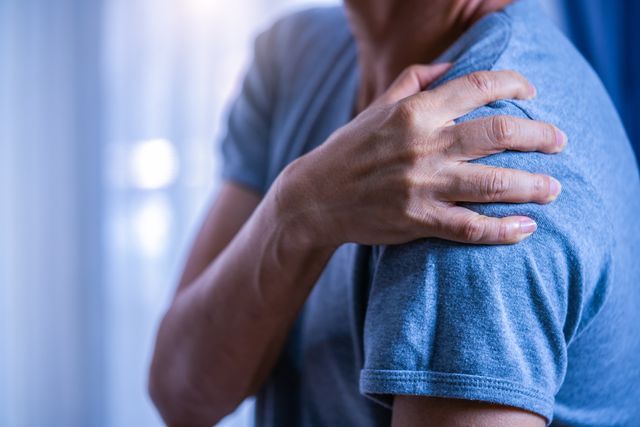
manusapon kasosodGetty Images
If you’re generally healthy and thought coming down with Covid-19 and recovering after several days was all you need to worry about, as the pandemic rages on, think again. For many people, there is also a good chance you’ll end up with “long Covid,” which is a wide spectrum of lasting symptoms that people experience after three to four weeks after their initial infection, even if they’re technically already recovered and are now testing negative. These symptoms tend not to be life-threatening in and of themselves, but they are often severe enough to affect your overall quality of life. Yikes, right?
“These symptoms can go away after the active infection and come back after a couple of weeks, or they may start with the infection,” explains Serhat Gumrukcu, M.D., an infectious disease expert, research scientist and executive director at Seraph Research Institute in Toluca Lake, Calif. “We call it long Covid because these symptoms don’t go away for over a month and they can even last several months.”
What’s frustrating about long Covid is that you may have had a pretty mild case during your actual infection and it’s these long-haul symptoms that are so tough to kick. While there still isn’t sufficient research that determines what causes some people to get so unlucky in this regard, it’s suspected that one possibility is if you didn’t allow yourself to sufficiently rest and recover before trying to return to the stresses of everyday life, or before returning to intense exercise. If there’s anything experts can agree on, it’s that you don’t want to mess around with Covid recovery, and if there were ever a time to lie back and take things easy, this is it.
What are the symptoms of long Covid?
According to Dr. Gumrukcu, the most common symptoms of long COVID are fatigue, brain fog and memory issues, headaches, shortness of breath, chest pain, and cough.
“[Some patients also experience] heart symptoms like irregular heartbeat, and tinnitus, [or ringing in your ears], he says.
Some of the above symptoms, like feeling short of breath and experiencing chronic chest pain and cough, can also add to an inability to handle exercise, even if you feel like you’re not even working that hard. So that’s something else to keep in mind – if you have big goals on tap like completing a marathon, the last thing you want to do is try to bounce back too hard after having Covid.
How does long Covid cause muscle pain?
Another long Covid symptom that is starting to present in more patients is muscle pain, which, like all long Covid symptoms, can be caused by several different mechanisms.
“The viral infection can cause cell damage in the lungs or other organs, and it can also cause blood cells to clump and form clots that would impair the blood circulation to any organ that the clots go,” explains Dr. Gumrukcu. “Another [cause] is the extended activation of the immune system against the virus– sometimes the immune activation doesn’t stop, which leads to various auto-immune disorders.”
How can you manage long Covid-related muscle pain?
Muscle pain can originate from any of these mechanisms and should be addressed depending on the cause, he says. The most common cause of long Covid-related muscle pain is tissue damage or blood clot/circulation issues, which can be managed mostly with simple blood thinners like aspirin, and sometimes with other non-steroid anti-inflammatory drugs.
“If the pain comes from the tissue damage, exercise to build the muscle tissues back will be essential,” he says. Another cause of muscle pain can be extended hospital stays during the infection. “Muscles can atrophy and tendons can shorten. Exercise and stretching will be important in such cases.”
That’s where the long haul Covid clinics you may have heard about come into play – often, these patients will require physical therapy with an experienced physical medicine and rehabilitation team.
When should you see a doctor about long Covid?
According to Dr. Gumrukcu, if you’re still experiencing any symptoms after the fourth week since you tested positive for a Covid-19 infection, you should seek medical help to address long Covid symptoms. Your doctor can help you determine the best path forward to hopefully be back to feeling like your old self soon.
This content is created and maintained by a third party, and imported onto this page to help users provide their email addresses. You may be able to find more information about this and similar content at piano.io


Comments are closed.